The action-RPGs you should be playing
Diablo and Path of Exile are great, but there's a new crop of action-RPGs worth your time today.
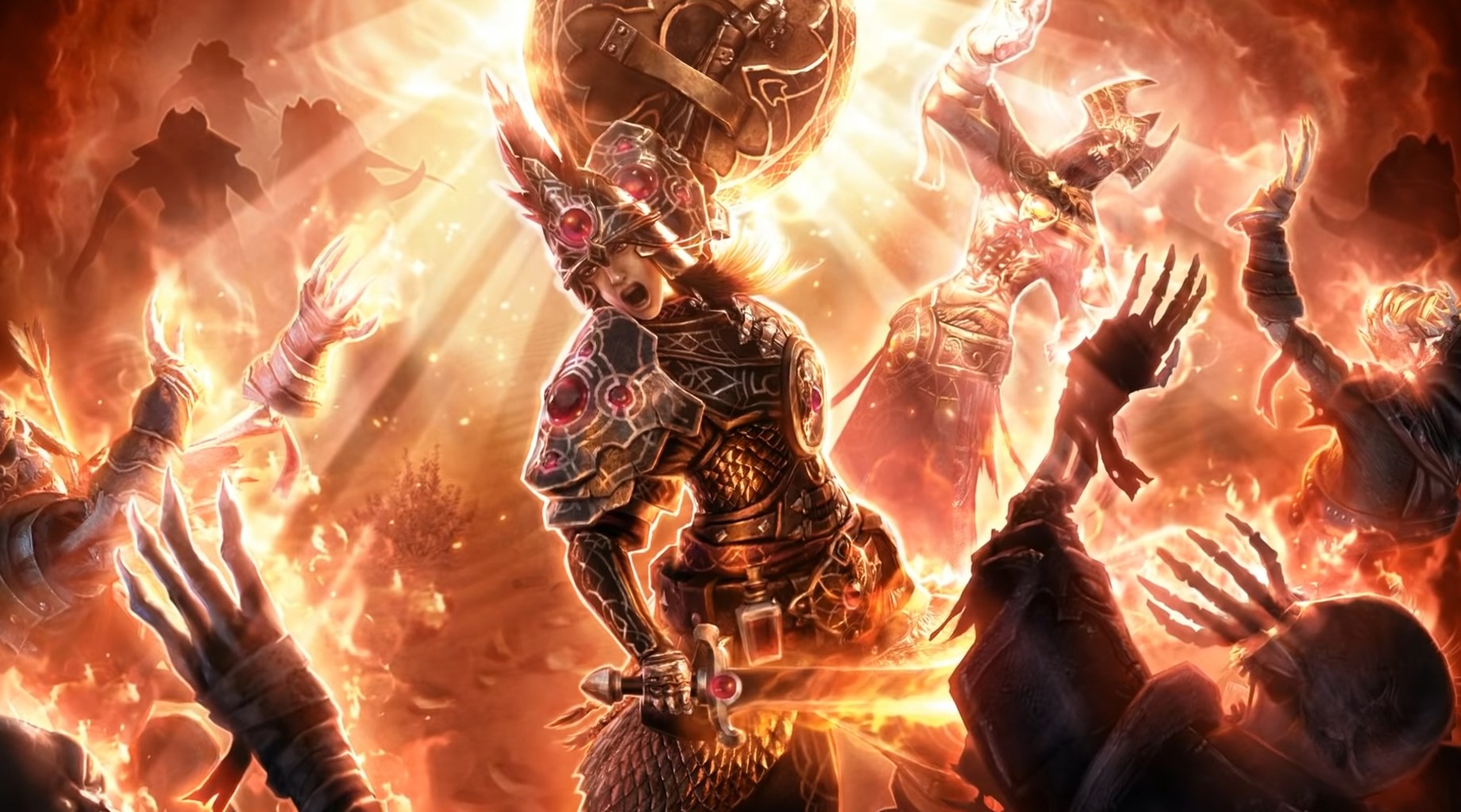
Clicking on monsters until they explode in showers of shiny loot—over and over again, for the promise of a slightly better pair of pants—is quintessential PC gaming. Most action-RPGs benefit from long lifespans thanks to a steady treadmill of refining skills, acquiring better loot, and endless dungeon crawling. But even the best action-RPGs aren’t immune to the ravages of time, and genre go-tos Diablo 3 and Path of Exile have been around for years now. As they grow older, several plucky newcomers have emerged in 2019, eager to gobble up weeks of your life. Some cling tightly to the Diablo tradition while others fearlessly blow it up to take a different path.
If you've stayed more than awhile in the world of Diablo, and made your way through Path of Exile's massive skill tree, these are the action-RPGs you should be playing in 2020.
Grim Dawn: Forgotten Gods
The Good:
- Create a unique class by combining two of nine class masteries, each with their own expandable skill trees.
- Gain Devotion Points to fill out expansive constellations of passive buffs and skill enhancements.
- Arcanepunk setting includes guns, rifles, and grenades alongside spells and swords..
- Non-randomized world results in more organic environments and level designs.
- Forgotten Gods expansion adds exotic locations, fun new enemy types, and the Adventure Mode-like Shattered Realm.
The bad:
- Newest Masery, Oathkeeper, is a somewhat boring stock-standard Paladin.
- Graphics are looking dated.
Who Should Play: Fans of Diablo 2 and Titan Quest. Anyone looking for a traditional action-RPG experience.
Don’t let that 2016 release date fool you. Although Grim Dawn is technically an older game, Crate Entertainment just put out its second major expansion, Forgotten Gods, earlier this year.
Grim Dawn is the spiritual successor to Titan Quest, one of the few truly excellent action-RPGs to bridge the long, lonely era between Diablo 2 and 3. Titan Quest’s legacy is partially reflected in the class mastery system, which combines two masteries to create a unique class hybrid, such as my dual gun-wielding Pyromancer (Demolitions + Occultist), who’s armed with fire-spewing revolvers, a mortar trap, a demon dog, and a raven familiar.
Keep up to date with the most important stories and the best deals, as picked by the PC Gamer team.
Forgotten Gods adds a ninth mastery, the Oathkeeper, bringing the total class combinations up to a staggering 36 (although I found the Oathkeeper, a shield-focused warrior, a bit boring compared to other masteries).
Forgotten Gods takes full advantage of its new setting. The Korvan Basin features a lengthy stint in the desert, followed by jungle ruins and a volcanic wasteland, a much-needed change of scenery from the base game’s homesteads and swamplands. Grim Dawn’s other major legacy feature from Titan Quest is to flip its middle finger at the randomly generated levels that are typical of action-RPGs, instead creating hand-crafted map designs. It feels more like a "real" fantasy world than a randomly generated series of hallways and dead ends.
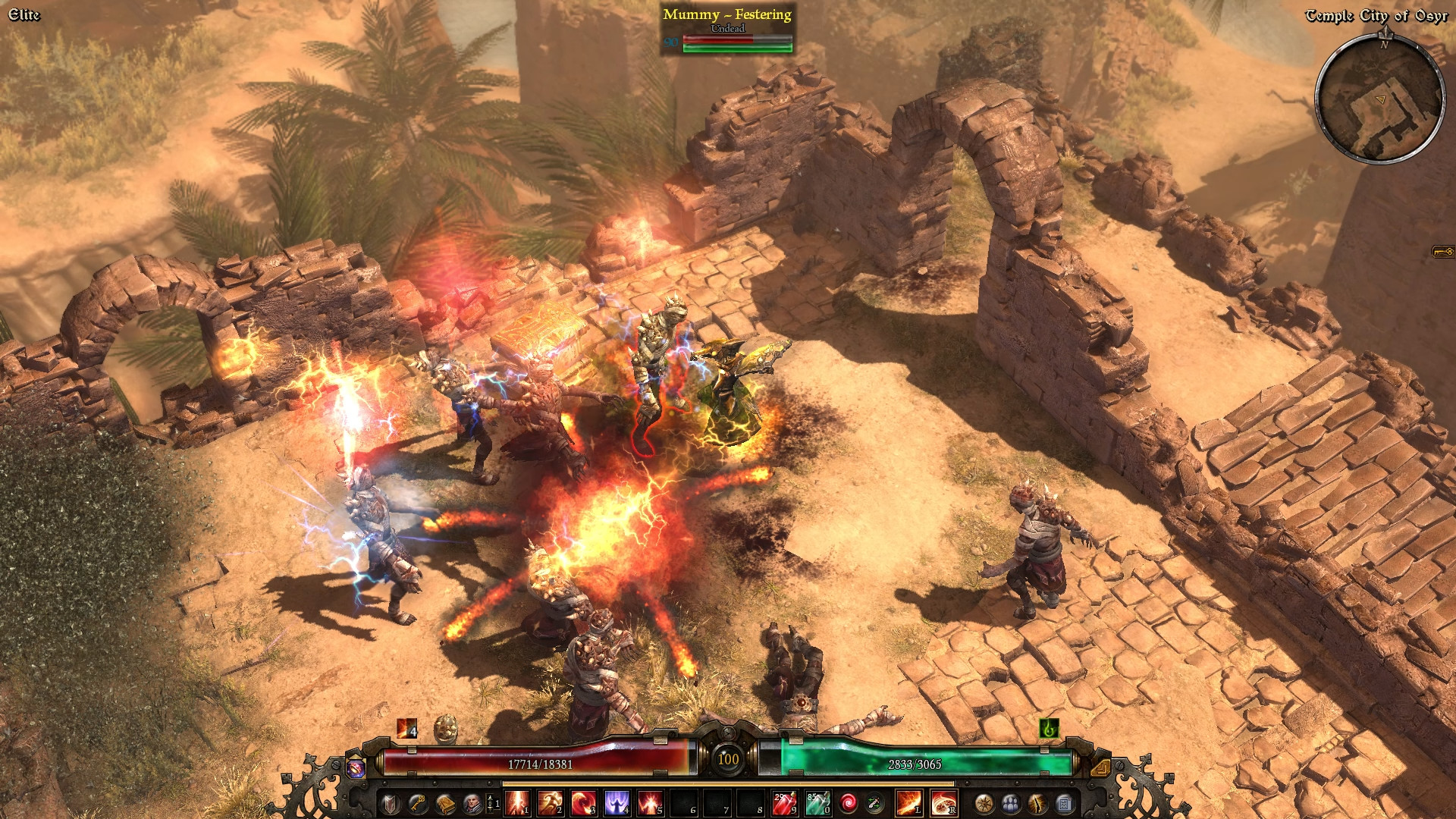

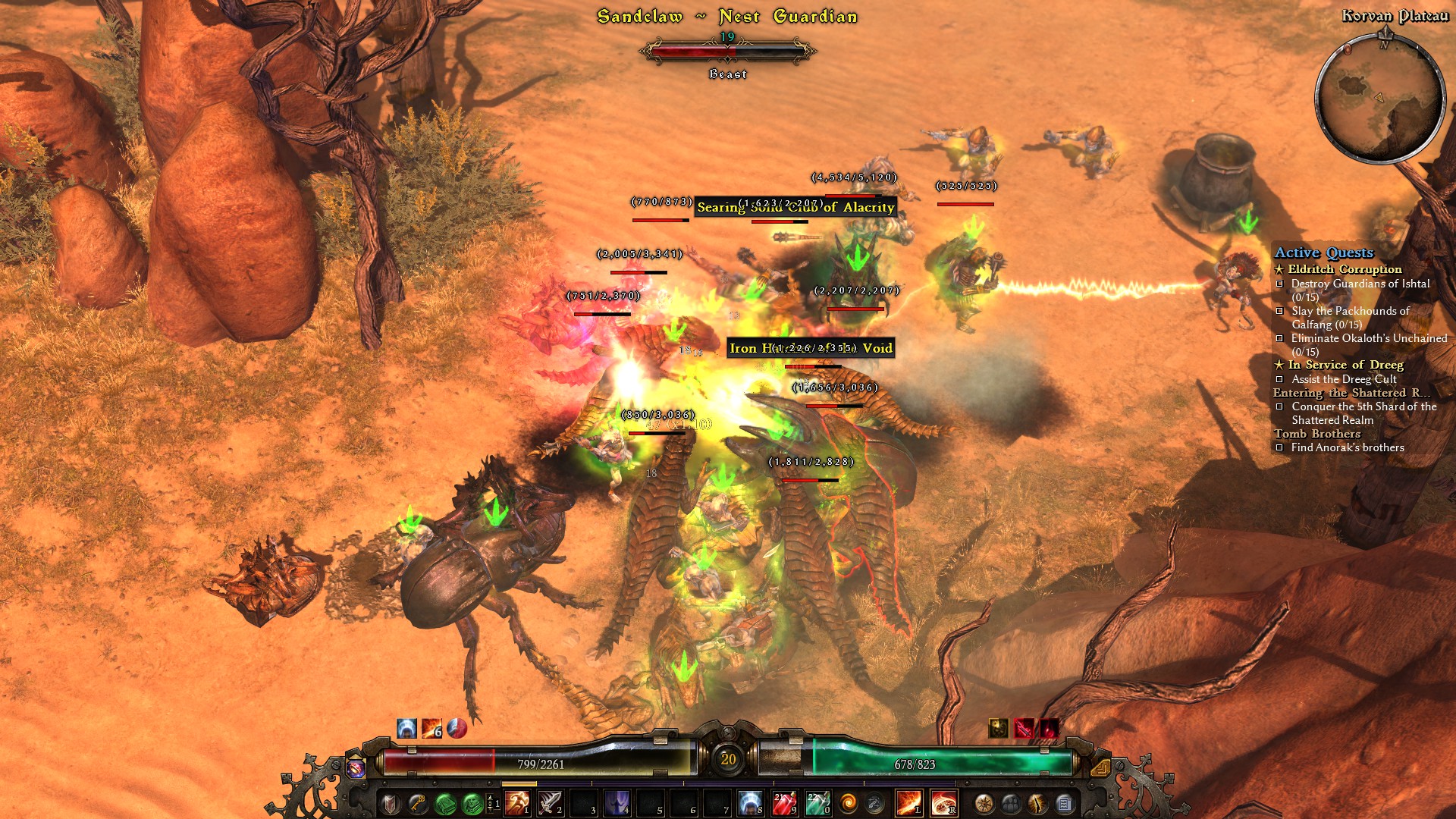
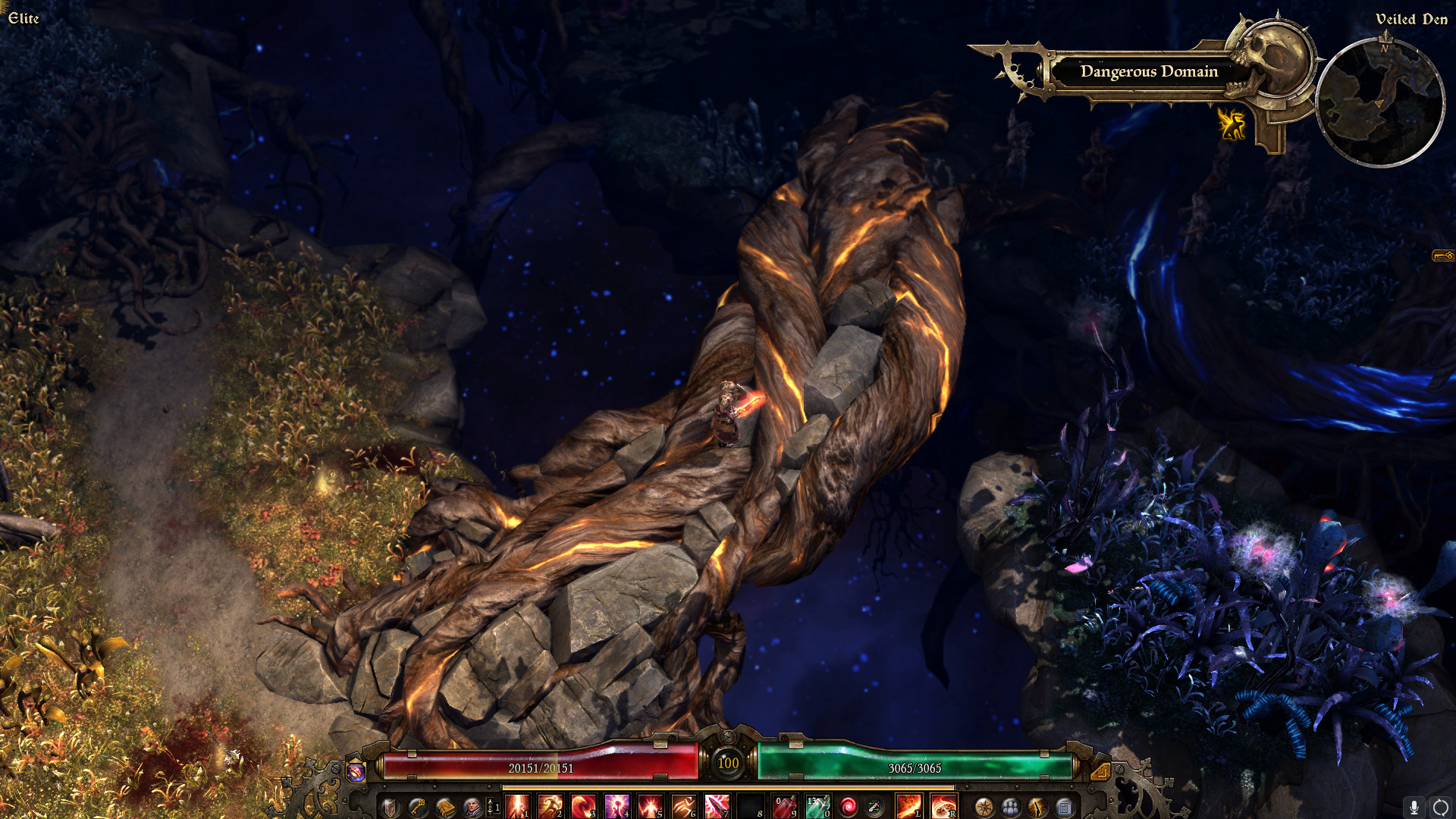
The expansion also attempts to solve the replayability issue by splitting the main questline among three different factions. The story is largely the same, but being able to choose different quests on subsequent playthroughs (or multiple characters) is a welcome feature that more ARPGs should use.
For even more replayability, Forgotten Gods takes a smart cue from Diablo 3: Reaper of Souls by adding the Shattered Realm, which works very similar to Diablo 3’s Rifts. Like the Rifts, the Shattered Realm eliminates loot and experience while battling through these series of randomly organized dungeons and boss battles, but I’m pushed to go as far as I can to gain a better treasure hoard at the end.
For newcomers, you don’t have to complete the entire base game to enjoy Forgotten Gods (unlike the previous expansion, Ashes of Malmouth). You need only complete the first act before the Emissary will show up in town, whisking you away to the more colorful Korvan Basin, with properly scaled enemies. Forgotten Gods reminded me that Grim Dawn is still one of the best traditional action-RPGs around.
Pagan Online
The Good:
- 10 different heroes, each with their own weapons and playstyles.
- Easy to level, equip, and switch between multiple heroes.
- Lengthy campaign with unique, gigantic boss battles.
- Quick, bite-size 5-minute missions.
The Bad:
- Unlocking new heroes is a time-consuming grind.
- The campaign is single-player only.
Who Should Play: MOBA fans looking for a PvE experience, action-RPG fans looking for something a bit different.
Inserting MOBA-style heroes into an action-RPG may be a bit blasphemous, but Pagan Online provides a fun twist on the genre, with 10 wildly different heroes, each with their own unique weapons and skills.
Playing so many different heroes is an alt-oholic’s dream, as once unlocked, I can seamlessly switch heroes between missions, whether running through the surprisingly meaty campaign or engaging in random survival missions. Gear has no level restrictions, and lower level heroes receive a fat XP boost, granting even further incentive to experiment with multiple heroes.
None of that would matter if the heroes weren’t interesting and fun. Thankfully there’s a rich variety of melee and ranged archetypes, from the standard elemental mage and axe-twirling barbarian to the more exotic tarot card-using fan-dancer and blood-whip demoness. Each hero has its own unique weapon and skills, with each skill including multiple upgrade paths.
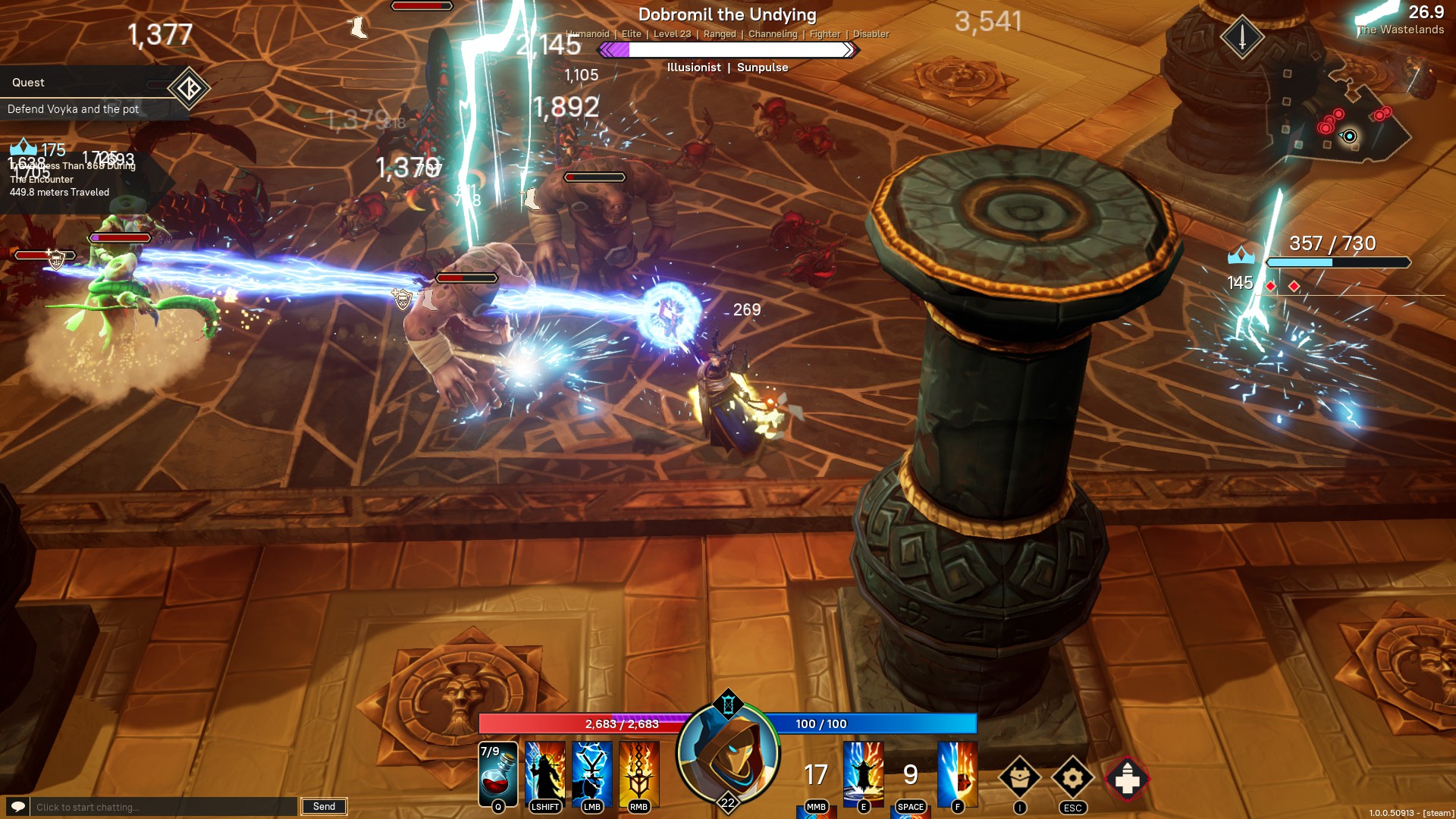
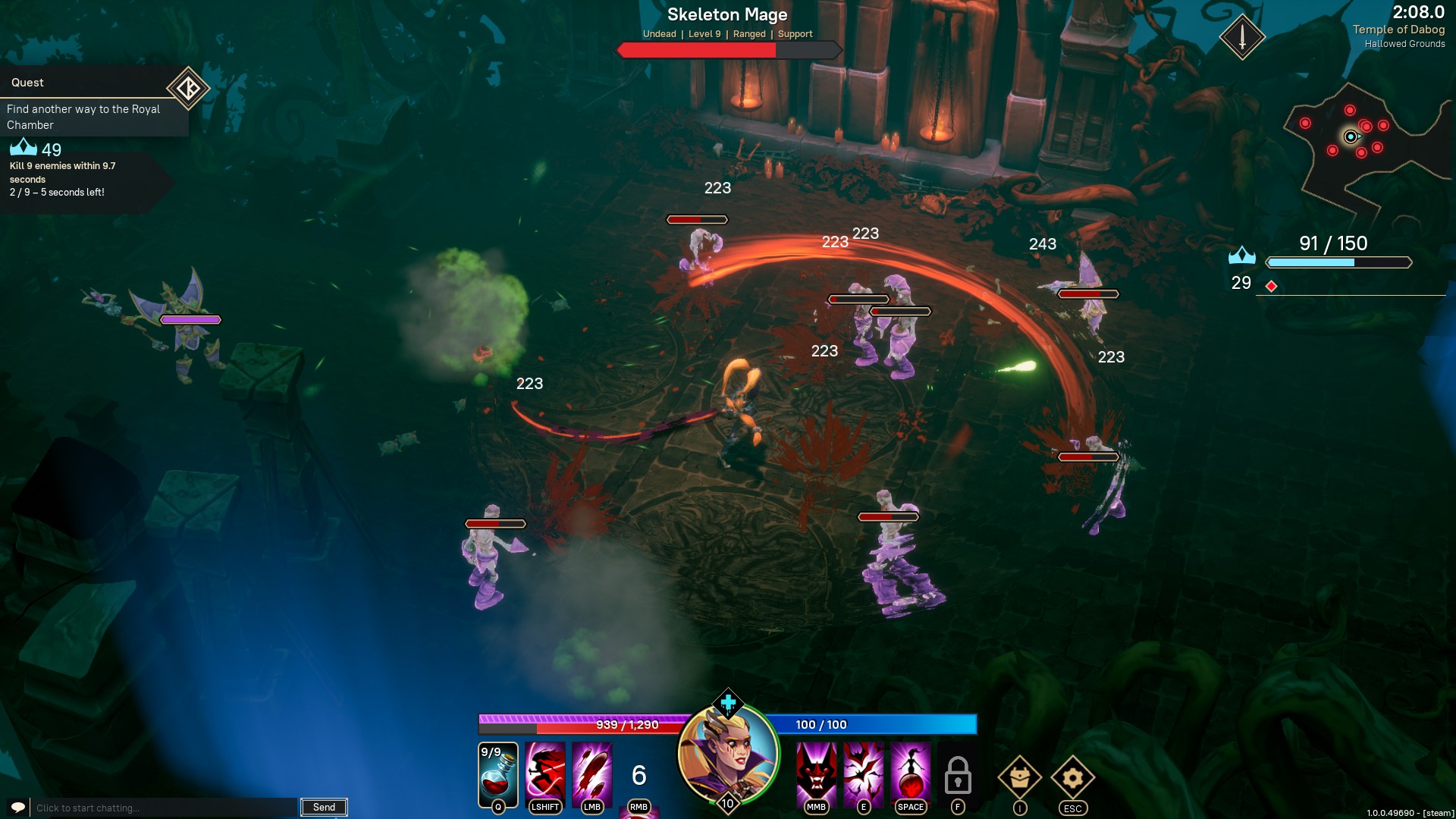
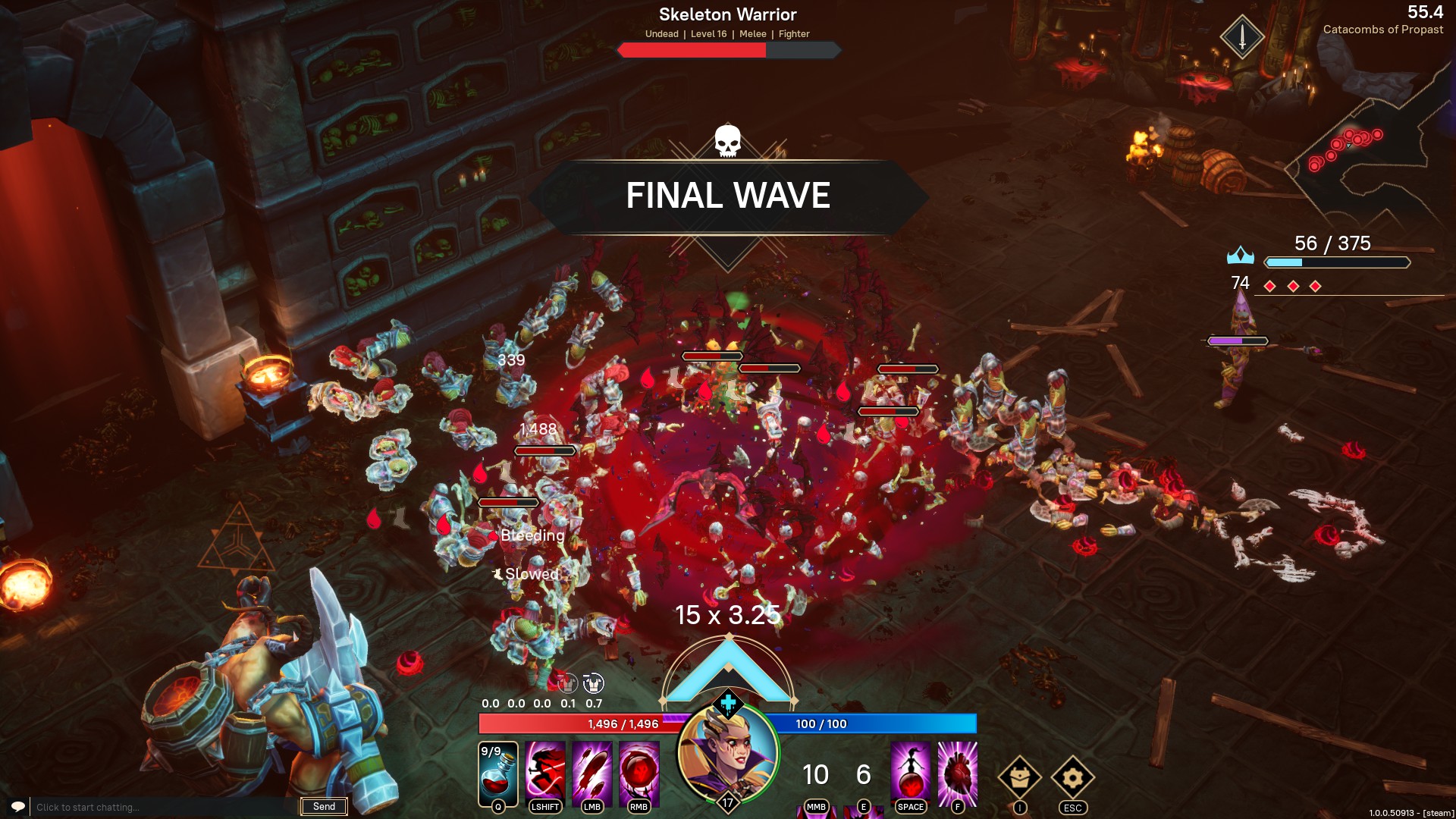
The fast-paced combat, compact levels, and WASD movement emphasize quicker and more intimate battles, where dodging enemy abilities is as important as knowing when and where to deploy the right attacks, and knowing how to use each hero’s signature traits and styles to their fullest extent.
Pagan Online stumbles when it comes to the actual “online” component. The campaign is limited to single-player only (despite being largely structured the same as missions), and multiplayer is limited to two players. Unlocking additional heroes is also a needless pain, the one carryover from free-to-play MOBAs that Pagan Online should’ve left behind. As I wrote in my review, be prepared for a grind. Those caveats aside, Pagan Online delivers a fresh take on a genre that's often hesitant to change.
Early Access action-RPGs to keep an eye on
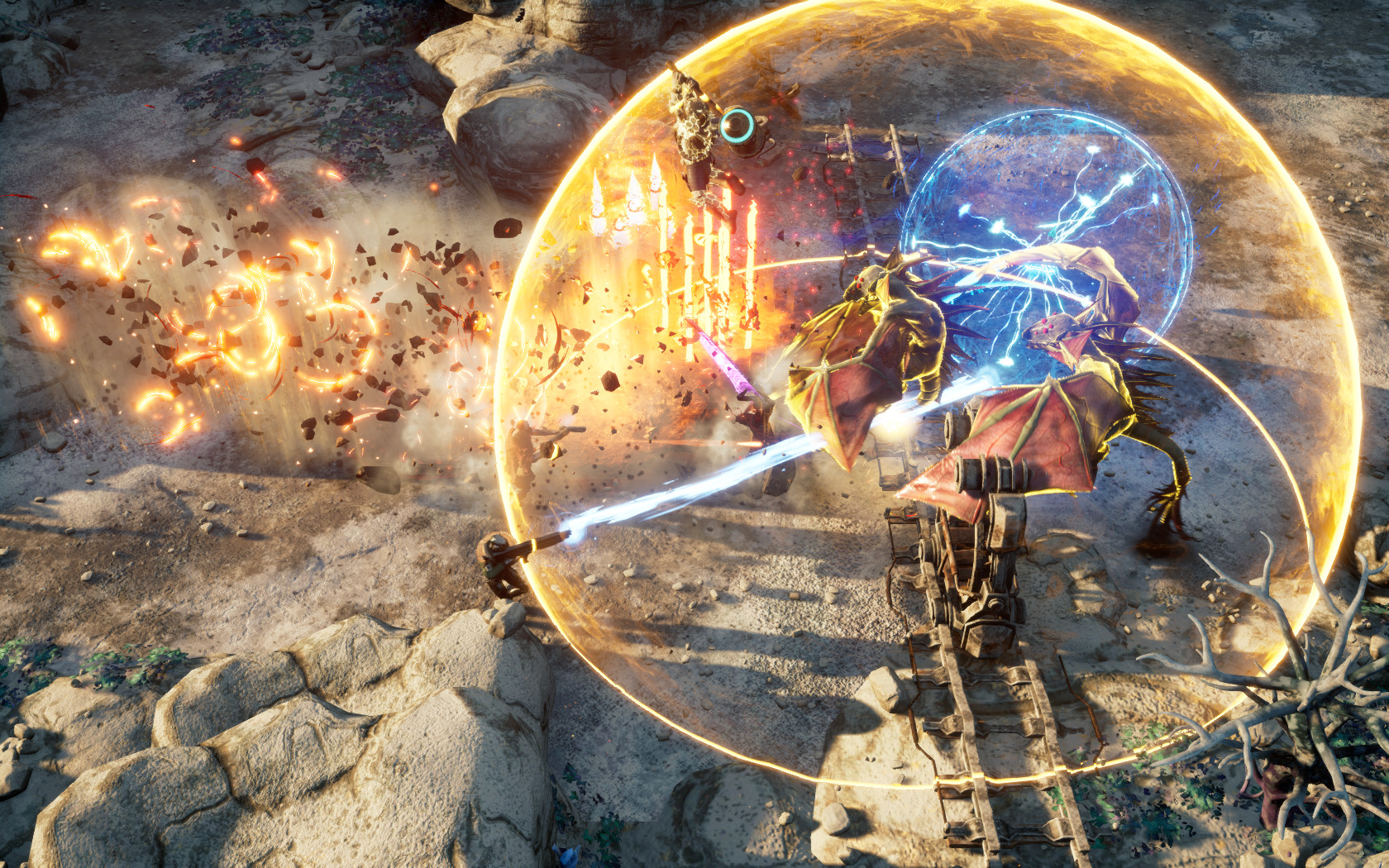
Killsquad sets itself apart with its sci-fi setting and arcade-like combat. It strips away most loot and standard level progression in favor of jumping into enemy-filled missions with up to four players. Combat is much more focused on player skill and coordination rather than who has the bigger numbers and better loot, and thus depends on matchmaking and population (if you don't have your own go-to squad) more than other action-RPGs. It’s also the best-looking game of the bunch. Hopefully Killsquad can build its audience as I've liked what I've played so far.
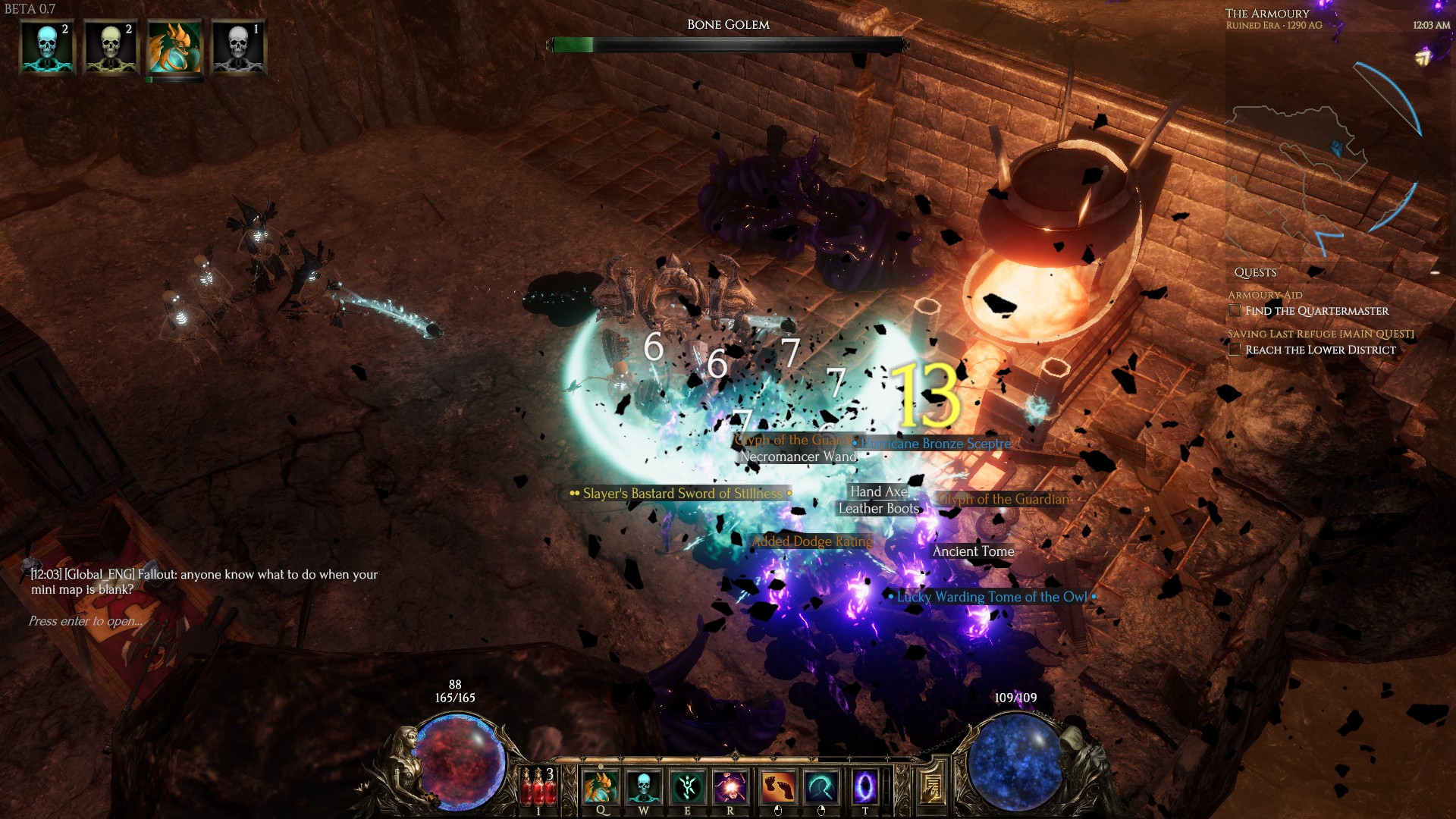
Last Epoch is gunning to be the next Grim Dawn, but where Grim Dawn uses Titan Quest as its base model, Last Epoch unapologetically worships Diablo 2. Map and enemy designs leave much to be desired but the classes, loot, and skill trees check all the right boxes. I especially love the option to specialize in certain skills, opening up entirely new skill upgrades. The unique time-traveling campaign is inspired by Chrono Trigger’s time-hopping story, as you work to reverse the apocalyptic end of the world. Last Epoch is a bit rough around the edges but is off to a promising start. It'll supposedly be out of Early Access in spring 2020.

